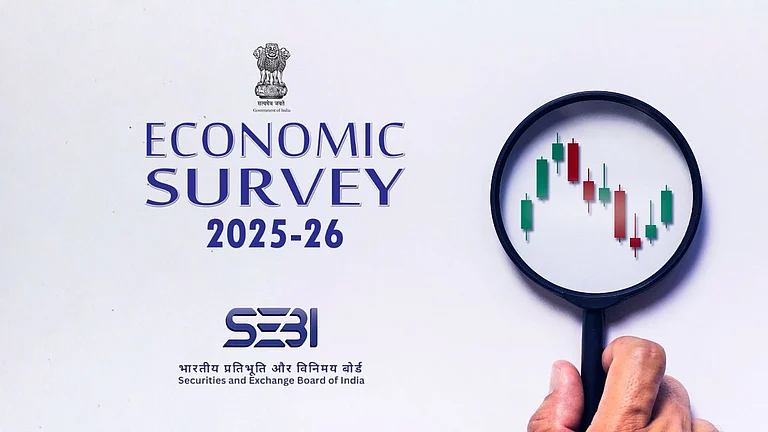
Summary of this article
Trading-call providers give recommendations to investors.
97% of all enforcement orders issued since 2013 related to IA regulations have been issued against trading call providers
Out of the total orders issued, 50 orders were issued during FY 2024-25
India is witnessing a trading boom with the total number of demat accounts surging to a record high of 210 million. Amid this growing participation by investors in the Indian securities market, the role of investment advisors, research analysts and trading call providers becomes paramount, as they guide investors towards realising their financial goals.
What ARIA Said About Trading Call Providers
Trading-call providers give recommendations to investors on what to do with a stock at a specific time, such as to ‘Buy’, ‘Hold’, or ‘Sell’.
A recent analysis by the Association of Registered Investment Advisers (ARIA) has revealed that of all 218 Securities and Exchange Board of India (Sebi) enforcement orders issued since the SEBI (Investment Advisers) Regulations, 2013 came into force, nearly all enforcement actions (97 per cent) were directed at unregistered and registered trading-call providers. Notably, in December 2024, Sebi amended the Investment Advisers Regulations, 2013 to disallow trading call providers from registering as investment advisers.
The analysis revealed that unregistered trading call providers were served 147 orders (67 per cent), while the registered trading call providers engaged in intra-day, derivatives, or stock-tipping and activities accounted for 65 orders (30 per cent).
What ARAI Said About RIAs
On the other hand, only 3 per cent of the orders were issued against investment advisors. ARIA added that these orders were issued for technical or procedural or documentation-led lapses. Renu Maheshwari, chairperson, ARIA mentioned in the release that most of the enforcement under the IA Regulations has historically been related to trading-call providers rather than fiduciary investment advisory services.
“The analysis suggests that most of the enforcement under the IA Regulations has historically been related to trading-call providers rather than fiduciary investment advisory services,” Maheshwari said in the release.
He added that as the eligibility to transition from being a trading call provider to Investment Adviser is not there anymore, the regulator should focus on supporting genuine, client-centric fiduciary advice.
“With trading-call providers now no longer eligible for registration as Investment Advisers, it may be timely for the regulatory focus to evolve—towards supporting genuine, client-centric fiduciary advice while streamlining compliance obligations designed for a different context,” Maheshwari added.
The industry body also stated in its analysis that out of the total orders issued, 50 orders were issued during FY 2024-25. Out of these 50 orders, 31 orders were issued against unregistered trading-call providers, 15 were issued against registered trading-call providers and only four were issued against registered investment advisors (RIAs). Additionally disgorgement and refund directions were issued only to unregistered entities.
What Should Investors Do
The analysis conducted by the ARIA shows that the average stock market investor is at significant risk from unregistered trading-call providers.
These unregulated entities dominate enforcement cases. Thus, investors should only seek advice from Sebi-RIAs, as they comply more strictly with the market regulator’s guidelines and have far fewer enforcement actions taken against them.
Investors should be wary of the source of the trading calls they receive and always check whether the provider of the call is registered with the Sebi or not. The registration status of any investment advisor can be checked on the Sebi website. Additionally, investors should be wary of advisers who promise guaranteed returns as this is a common tactic deployed by unregistered entities.
















